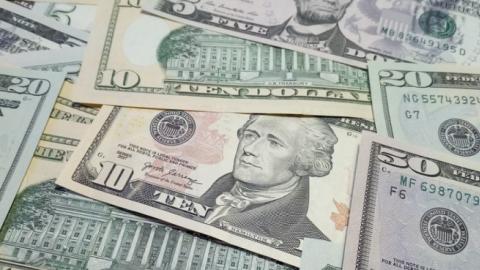Donald Trump is taking the global economy to the edge of hell in a handbasket and his meeting with Xi Jinping during the G20 in Osaka will only provide temporary relief. Led by Russia and China, central banks throughout the world are dumping US Treasury bonds and buying more gold than at any time since 2013. As a result of Trump's recklessness, the US will soon lose its "exorbitant privilege" of reduced borrowing costs due to the greenback being the global reserve currency of choice.
That is what many Trump haters, but also eminent bankers and economists, are saying. But they are wrong. Let’s put aside the compelling argument that it is China’s illegitimate and even illegal economic practices on a large scale which poses the greater danger to the stability of the global economic system for another day.
The likelihood is economic disruption and uncertainty will only further entrench America’s "exorbitant privilege". Neither the euro, renminbi nor gold will replace the greenback in any meaningful sense.
First, the numbers. The share of global reserves in US dollars might have fallen in 2018 but that is occurring from a dominantly high base. At the end of 2018, about 62 per cent of global reserves were in US dollars, compared to around 20 per cent, 5 per cent and 2 per cent in euros, Japanese yen and RMB respectively. It is a similar story for international debt with just under two-thirds in US dollars, compared to 22 per cent in euros in second place.
Gold reserves a secret
Does Chinese buying of gold signal a sea-change coming, perhaps even intention to convert the RMB to the gold standard? Not really. China usually keeps its gold reserves a secret, although it did reveal that it held 1658 metric tonnes of gold last July – up from about 600 tonnes in 2009 which was when it last released official holdings. Most experts who follow gold mining and purchase movements believe the People’s Central Bank holds around 3000 tonnes. At current prices, this equates to around $US136 billion ($195 billion) worth.
This is a hefty figure but small compared to the $US3.2 trillion or so it holds in foreign exchange reserves. To hold that amount of value in gold, it would need more than 500,000 tonnes of the stuff. Gold miners tell me that is more than two-and-the-half times more than has been mined in the history of the world. For China and every other country, fiat currency is here to stay.
The question is: which currency will be dominant? To answer that question, we must return to why the US dollar became the dominant reserve currency in the first place.
For starters, the greenback is fully tradeable on international foreign exchange markets. There are no capital controls restricting the purchase or sale of the dollar. With the deepest and most developed financial and debt market in the world, buying and selling the greenback is easy, efficient and transparent.
Paranoid about instability
This immediately restricts the capacity of the RMB to assume the role of genuine global currency. Given its determination to capture national savings and retain central control over the country’s deployment of capital, Beijing is committed to a closed capital account and cannot risk RMB fleeing the country. Paranoid about instability resulting from the ups and downs of a liberalised economy and resulting fluctuations in the value of its currency, it will not allow full convertibility of the RMB.
Nor will the Communist Party allow the unrestricted issuing of corporate bonds and other forms of private debt, preventing the emergence of deep and diverse financial markets inside China. Under these circumstances, why would one buy RMB except to trade directly with, or invest in, China?
Moreover, the global reserve currency serves as a safe store of value and as a way for governments and private entities to park and protect accumulated wealth – especially as geo-strategic and economic tensions rise globally. Even those who admire Beijing’s model would have doubts about the long-term security of their capital given the capriciousness and opaqueness of its system and institutions. With respect to those former prime ministers, politicians, ambassadors and businesspeople who regularly spruik the superiority of its authoritarian political-economy, I doubt any of them would permanently park the bulk of their assets in China.
What about the euro? The problem is that the future of the EU is less certain than that of the US. What happens after Brexit is finally over? There are significant anti-EU movements in countries such as Sweden and the Netherlands. Even if all continental members stay put having observed the trauma that Britain is going through, the problem for the EU remains: it is a common monetary and customs union for a motley bunch of sovereign countries with different institutions, attitudes, economic policies and standards of living and national debt. The US seems a far better long-term bet on that account.
Finally, what about a new global reserve currency disconnected from individual nations, as Russia and China first suggested more than a decade ago? That would run into the same problems as the EU multiplied by the number of countries encompassed by that pie-in-the-sky idea.
The bottom line is that the more instability and uncertainty in the era of Trump and beyond, the more likely the greenback remains the world’s pre-eminent reserve currency .

















